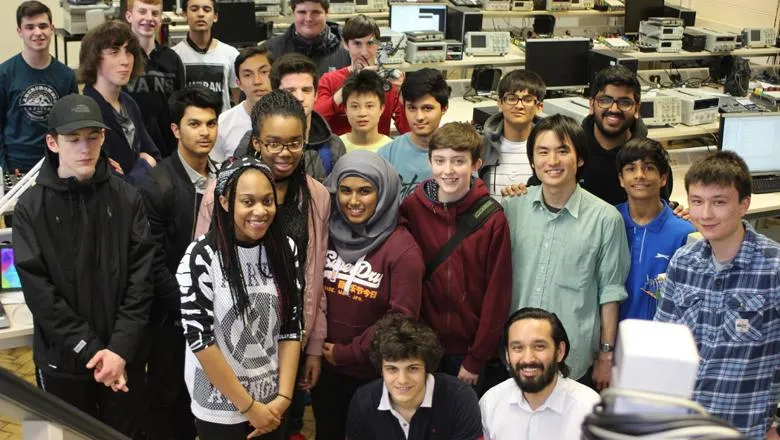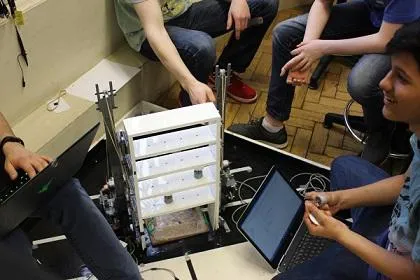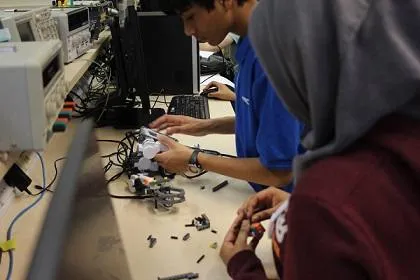06 June 2017
Schools explore horticultural robotics with King's researchers
A group of 16-year-olds from local schools recently got the chance to explore horticultural robotics in a series of Growbotics workshops run by Department of Informatics researcher Aran Sena. The sessions, sponsored by Science Gallery London and Vitacress, were part of the Collaborate & Engage public engagement course at King’s College London.

This course offered funding for up to five projects from among proposals by 24 PhD students from Arts & Humanities and Science faculties, and Aran’s proposal was among those selected. Working alongside him were fellow researchers from the Department of Informatics, Peter Gordon, Elizabeth Mann and Alison Skipper, and artists Amina Nazari and Dean Rogers.
The team hope to bring an interactive exhibit to an exhibition space in central London later this year, but the Collaborate & Engage project also allowed scope for more focused public engagement activity. The involvement of KCL Robotics Society president Arthur Zargaryan led to the development of a workshop series for 16-year-olds, designed to inform them about the use of robotics in areas they might not have previously considered, such as horticulture and agriculture.
The workshops aimed to demonstrate that automation through robotics and AI is playing an increasingly important role in society, and that the skills learned through working on robotics projects can enable students and researchers to tackle a wide variety of problems.
The workshops ran across four days, with the first two days largely taught, and the rest of the time available for the students to apply their new skills to a grand challenge. The students were shown a range of different types of robots, and taught about the trade-off between the level of structure in a robot operating environment and the level of autonomy that the robot can achieve. The students got a crash course in Java to enable them to programme the robots, and took part in some code-based mini challenges.
On the second day, they got to grips with the specifics of programming robots to perform horticultural tasks by human demonstration. After some opening talks, the students got to work on their own programming, with a little help from the KCL Robotics Society. Lunch breaks provided the chance for further inspiration with visits to the KCL Festival of Science and the KCL NMS Impact Showcase, with researchers available to speak about their work first-hand.
Days three and four saw the students working in teams of six on the main challenges. Students had to either develop a robot capable of picking up Lego plants and arranging them on a marked out grid, or work on a challenge based on the automation of a “vertical farm”, which involves growing plants on shelves. Students on both challenges displayed some creative thinking to complete the tasks, as Aran explains with regard to the first problem:
“I was really impressed with all the students in this challenge, as they explored not only various software-based solutions to the problem, but also explored how to vary the robot's embodiment to better suit the problem - one group even ditched the pincer gripper design we provided altogether and opted to build a forklift!”
Following their success, Aran hopes to bring back the workshops again next year, and in the meantime will be working with the project team on their forthcoming interactive exhibit.


